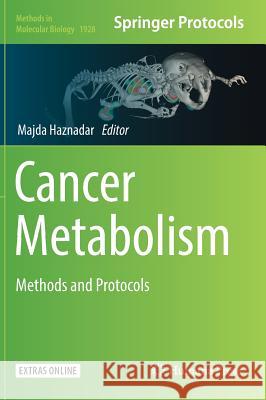Cancer Metabolism: Methods and Protocols » książka
topmenu
Cancer Metabolism: Methods and Protocols
ISBN-13: 9781493990269 / Angielski / Twarda / 2019 / 495 str.
Kategorie BISAC:
Wydawca:
Humana Press
Seria wydawnicza:
Język:
Angielski
ISBN-13:
9781493990269
Rok wydania:
2019
Wydanie:
2019
Ilość stron:
495
Waga:
1.08 kg
Wymiary:
25.4 x 17.78 x 2.87
Oprawa:
Twarda
Wolumenów:
01
Dodatkowe informacje:
Wydanie ilustrowane











